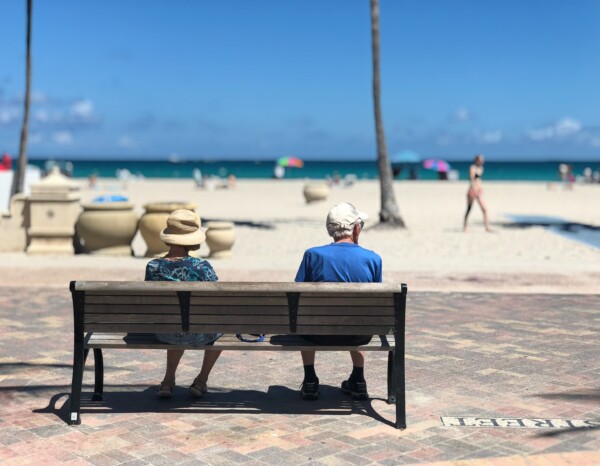
All people enjoy going out to run errands, visit friends and family, eat at local restaurants, and travel on vacation. However, some outings can create problematic behavior, agitation, and confusion for people living with Alzheimer’s disease or other dementia. Wandering is also very common when traveling to new places. Planning ahead and having a safety plan in place will allow for less stress, increased enjoyment, and more opportunities to live a quality life.
Tips for making outings successful
Consider timing
- Allow for more time to complete activities than was previously needed.
- Follow a routine – eating, bathing, and going to bed around the same time.
- The time of day can affect how tired or restless a person is. Try to go on outings when the person feels at their best.
- Being away from home for too long can cause discomfort. Plan for rest periods between outings and monitor the person for signs that they may need to return home.
Keep the person comfortable
- Take an extra set of clothing and multiple layers for temperature changes.
- Bring a blanket or familiar item to relieve feelings of discomfort.
- Visiting new places can overstimulate the brain which can lead to exhaustion or anxiety. Talk with the doctor about medications that may reduce discomfort during outings.
Ask for support
- Travel with another family member or friend.
- Call ahead to see if someone can provide assistance at the airport, train station, or bus station.
- We provide free companion cards, which explain that a person has dementia and may say or do things that are unexpected. Hand these out to staff or others to request that they show patience and understanding.
Plan for emergencies
- Bring important documents and store them in a safe place. These include health insurance cards, doctors’ names and phone numbers, a list of medicines, and a copy of medical records.
- Always carry a current ID or photo and an emergency contact in case of becoming separated.
- Enroll in MedicAlert, which provides ID bracelet that lists important medical and emergency contact information.
Going out to eat
Many people enjoy going out to eat for a change in food options and to reduce the energy required to prepare meals. Choosing the right restaurant is important not only based on the food selection, but also the comfort of the environment. The layout of the restaurant, familiarity to the person, noise level, waiting times, and helpfulness of the staff are all main features contributing to a quality experience.
Before going to the restaurant, observe the person’s mood and behavior to decide if it is a good day or time to go. Going out earlier in the day usually ensures higher energy levels, less crowds, and quicker service. If going out during the evening, it can be helpful to rest more during daytime hours.
Tips when at the restaurant
- Request a table near the restroom and in a quiet area, which can allow for less interruption.
- Try having the person sit with their back to busy areas to reduce distraction.
- If there are any items that could make the experience easier, such as extra spoons, bowls, or napkins, be sure to ask the server.
- Menus can be very confusing. Consider sharing a dish or limiting the number of choices for the person.
A note on incontinence when out
Bathroom accidents happen, and it is important to be understanding and reassuring when they occur. Though often neither the care partner nor the person living with dementia has control over accidents, it can help a great deal to be prepared. Before leaving home, remember to gather needed supplies. Helpful items may include an extra change of clothes, a towel, wipes, and other bathroom items, which can be carried in a backpack or large purse.
For more information on safety planning or further suggestions, please contact our Clinical Care Coaches at 858.492.4400. You may also attend our in person or online classes and view more of our free services.




